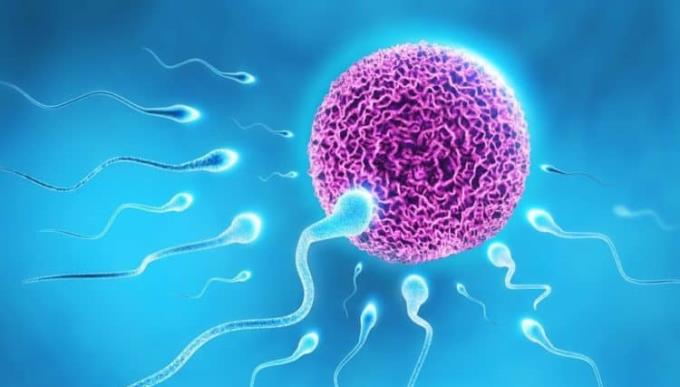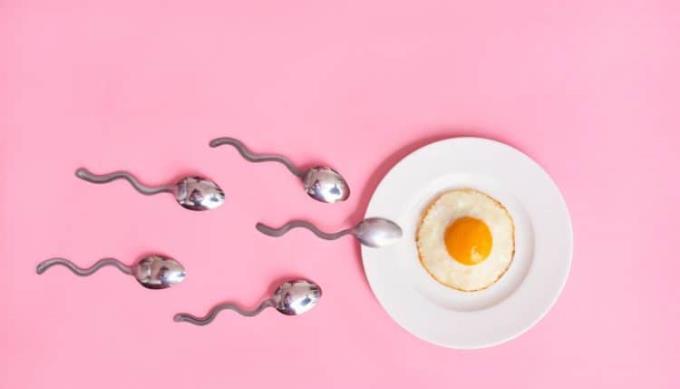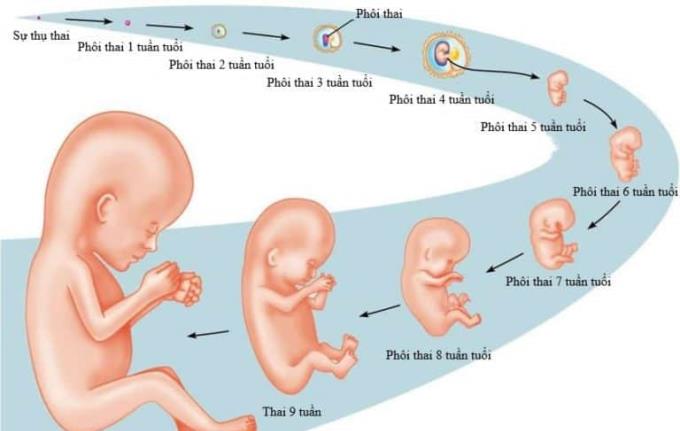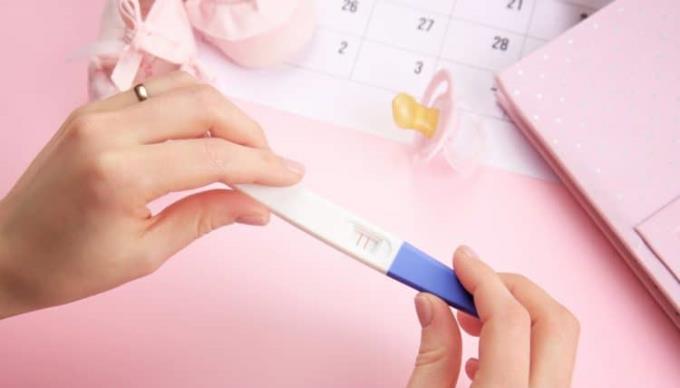As you probably know, conception occurs when a sperm fuses with an egg cell. This process is not simple, even it takes a quite a long time for the sperm to reach the egg.
If you are trying to get pregnant, you should have a good understanding of how conception works to increase your chances of conceiving successfully. Let aFamilyToday Health explore this process with the following information.
What should be needed for the process of conception?
In order for the process of conception to take place, it is necessary to have two important factors: eggs and sperm.
1. Egg cells
Eggs are produced by a woman's ovaries. Each menstrual cycle, ovaries will release 1-3 eggs. After ovulation, an egg must go through the fallopian tube (about 10cm long) to reach the uterus.
Eggs can only live 24 hours after ovulation, so they must be fertilized during this time before you can become pregnant. If not fertilized, the egg dies and is ejected according to the menstrual cycle immediately after.

2. Sperm
In contrast to women who only release 1-3 eggs per menstrual cycle, a man's body is constantly producing sperm. It takes 2 - 3 months to form new sperm cells. These sperm cells can then live for several weeks in the male body.
When a man ejaculates, a man can release about 40-300 million sperm, but only one sperm can fertilize an egg. If you want to learn more about eggs and sperm, you can refer to the following article: Understand thoroughly about eggs and sperm .
Conception process like?
1. The process of sperm meeting eggs
Having sex helps men achieve orgasm and ejaculate. Orgasms push sperm into the vagina and toward the cervix at speeds of more than 16 km / h. This is a good start for the sperm to swim in search of eggs quickly. A constriction of the cervix also makes it easier for sperm to move, but a woman doesn't need to have an orgasm for this process.
The first obstacle that sperms encounter on the track is the mucus in the cervix. Before and after ovulation, the mucus in the cervix is usually pliable, thick like an impenetrable wall. On the days around ovulation, cervical mucus becomes loose, smooth, and smooth, allowing sperm to swim through easily.

Most sperm get trapped by not getting into the fallopian tubes or dying along the way. In fact, only a small number of sperm can reach the fallopian tubes and reach the egg. Here, the sperm entered a new competition.
Each sperm must find a way to penetrate through the egg's outer shell to get inside before the other sperm. When a sperm gets inside the egg, the egg immediately stops any other entry. It is like a protective egg shield at the moment sperm first reaches the egg, starting to take place during conception.
2. How long does conception take place?
After the sperm is released into the vagina, a lot happens inside your body. Millions of sperms begin a race about 18cm from the cervix to the fallopian tubes to fertilize an egg. Sperm can only move at a rate of 2.5 cm every 15 minutes, so this is a long way.
According to BabyCentre , the fastest swimming sperm will reach the egg about 45 minutes after the man ejaculates. The slow ones can take up to 12 hours. Research shows that sperm can persist inside your body for about 3-5 days. During this time, if ovulation occurs, it is possible to conceive.
The formation and development of the fetus

During conception, the cells carrying genetic information in the sperm and the egg combine to form new cells and will begin to divide rapidly. The new cells are called blastocysts. The blastocyst travels down the fallopian tube toward the uterus. This migration can take up to three days. When attaching to the uterine wall, the blastocyst develops into an embryo and placenta.
After the egg is fertilized, you won't have your period for the next period. This is possibly one of the most recognizable signs of pregnancy . If you notice signs of pregnancy, you can use a pregnancy test to check if you are pregnant.
In fact, there are cases where the blastocyst attaches to a place other than the uterus, usually in the fallopian tube, and causes ectopic pregnancy . This is one of the most dangerous pregnancy complications. The fetus will not be able to survive, grow outside the uterus and need complete removal to avoid serious complications for the fallopian tubes.
The sex of the fetus depends on the sperm chromosome of the sperm inside the first egg. If an egg is fertilized with a sperm carrying the Y chromosome, you will conceive a baby boy. Conversely, if an egg fertilizes with a sperm carrying the X chromosome, you will conceive a baby girl. There is some scientific evidence on how to give birth at will , but overall, the sex of the fetus is determined at random.
What to do to support a smooth pregnancy?
There are many ways to help conceive and help you increase your chances of getting pregnant , such as calculating the date of your ovulation for sex.
Some obstetricians and gynecologists recommend that, after having sex, you should not douche. Lie on your back in place and place a pillow under your buttocks for 20-30 minutes to help the sperm move to the egg faster. Another way to increase fertility is to ask your husband to massage it after having sex. Massage at this time helps the sperm move to the fallopian tubes more easily.

In addition, to conceive effectively, you and your husband need to be in good health. Therefore, you should have a checkup to rule out any problems that may affect fertility or pregnancy. These factors affect fertility can be weight, smoking, use of alcohol, beer, drugs, stress or taking certain medications can adversely impact this ability.
If after trying to conceive, but still no results, it may be because you make mistakes that make it difficult to conceive . Be careful and follow up to know the reason why you are difficult to get pregnant so that there are appropriate adjustments.
Through this article, hope you have more information about the process of conception to better prepare for your pregnancy!















